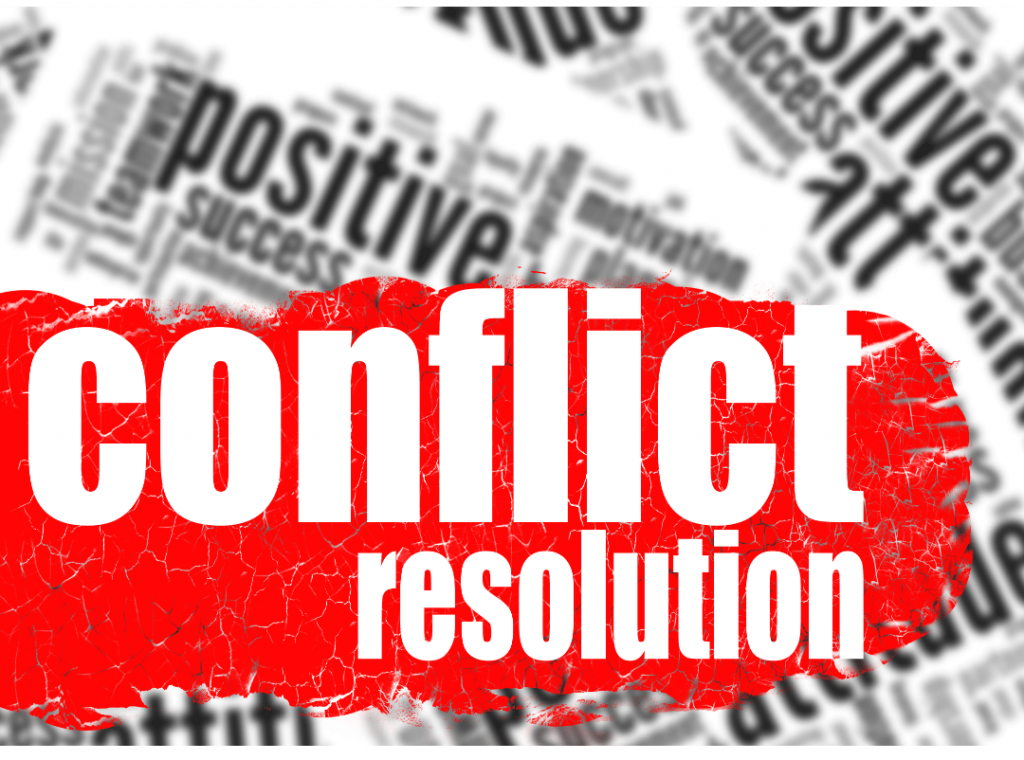Education & Career Trends: December 10, 2022
Curated by the Knowledge Team of ICS Career GPS

Content Credit:
- Article published on theladders.com. Original article link.
In the various daily setting and scenarios, it’s common for problems and conflicts to arise. Some problems may be minor and pass by without much issue. However, when problems fester or escalate, it can lead to a full-scale conflict. When this occurs, we must be able to find ways to resolve the conflict before it causes greater disruption and reduced productivity.
Early intervention is the best way to achieve conflict resolution. It’s especially helpful in leadership positions which need to possess conflict resolution skills to diffuse any problems.
What is Conflict Resolution?
Understanding the definition of conflict resolution is the first step in managing the disputes that will arise. Conflict resolution involves being proactive instead of letting conflict get ahead of you. In workplace settings, doing so consists of having a management team in place that is tasked with resolving workplace disputes and issues.
While dealing with conflicts is never pleasant, it’s best to meet them head-on versus ignoring them and hoping they will just go away.
Tips to Mediate a Conflict Resolution:
Here is a list of steps and tips that can guide you in conflict resolution:
1. Have a meeting
- Make sure you meet with both parties together.
- You should never meet with them separately to hear their stories because it can hurt the integrity of the resolution.
- One party may feel you are biased, and it’s also important that both sides can hear what the other side is saying about them.
2. Acknowledgement of the problem and willingness to resolve It
- Once you have the parties together, it’s vital to get to the point.
- Acknowledge the conflict and elicit each person’s willingness to come to a resolution.
- Everyone must be on the same page before you can move forward.
3. Allow the parties to have their say
- Let each party have a specified time to state their grievance or issue without interruption.
- This helps both parties feel heard and validated.
- If necessary, you could give the parties a second round of time to speak to rebut or respond to what the other party had said.
4. Have each person provide suggestions for a resolution
- Next, you can ask the parties to suggest how they would envision a resolution.
- If the atmosphere is tense at all, you could have them write down their suggestions, but discussing them is preferred.
5. Identify necessary changes and triggers
- As the manager, you need to keep your eyes and ears open to identify any necessary changes or issues that could trigger conflict.
- If you see something that is a problem, let the parties know.
6. Create a plan that is satisfactory to both parties
- Once everyone has given you their suggestions and you’ve identified the problems, it’s time to develop a plan that both parties can agree to.
- This will likely require some compromise on both sides.
Conflict Management Strategies:
1. Accommodating
- This way of resolving a conflict is sometimes called smoothing, because it “smooths down” the problem quickly.
- It consists of one person giving the other party what they want and coming to a speedy resolution.
- Sometimes this can work, especially if the conflict is over something minor or not something one of the parties is deeply committed to.
2. Compromising
- A compromise involves both parties contributing something to the resolution.
- This can bring about a reconciliation in a short amount of time if both parties are willing to move a little.
- It also prevents the problem from growing by not resolving it.
- Compromising right away diffuses the tension while the long-term solution is worked on.
3. Collaborating
- Collaboration is similar to compromise because it consists of both parties working together.
- But instead of both parties simply giving up something, it involves them working together to find a mutually agreeable solution.
4. Avoiding
- It might seem easy to ignore a problem and hope for the best.
- It’s human nature to avoid conflicts because we don’t enjoy them.
- However, avoiding the conflict will not make it disappear.
- In fact, it could lead to deeper resentments and issues in the long term.
Conflict Resolution Skills:
To be successful, you need to have specific skills. Conflict resolution skills include which of the following?
- Problem-solving
- Good listening skills
- Assertiveness
- Patience
- Positivity
- Interviewing ability
- Empathy
- Facilitation
- Mediation
- Accountability
- Impartiality
- Intuition
- Leadership
- Stress management
- Emotional intelligence
- Creativity
…
Have you checked out yesterday’s blog yet?
What role can a VFX and animation programme play in your career path?
(Disclaimer: The opinions expressed in the article mentioned above are those of the author(s). They do not purport to reflect the opinions or views of ICS Career GPS or its staff.)
Like this post? For more such helpful articles, click on the button below and subscribe FREE to our blog.



